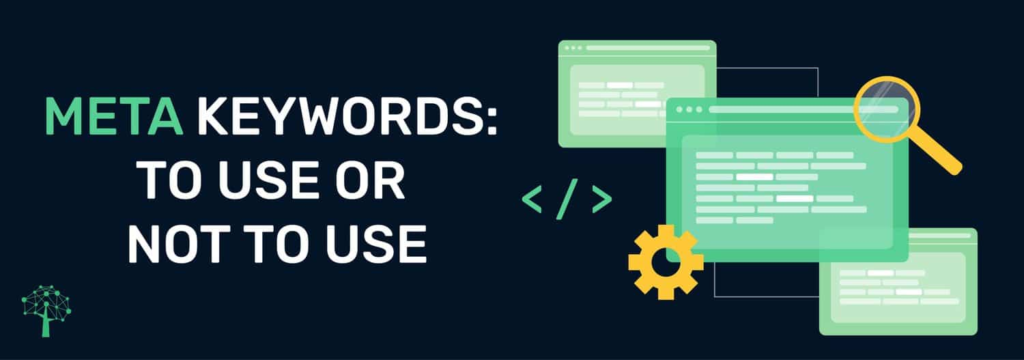
Search engine optimization (SEO) is crucial for enhancing a website’s visibility and ranking on search engines. One of the topics frequently discussed in the field of search engine optimization (SEO) is the use of meta keywords. In the past, search engine optimization (SEO) played a crucial role in marketing strategies, but its significance has diminished over time. In this article, we’ll delve into the concept of meta keywords, discuss their relevance in SEO, and explore alternative strategies for optimizing websites.
What Are Meta Keywords for SEO?
Meta keywords are a specific type of HTML tag that assists search engines in comprehending the content of a webpage. In the head section of the page, meta keywords were initially designed to include important phrases that accurately represent the content of the page. They offered search engines with supplementary hints to assist in indexing and ranking the content.
For instance, a blog post about nutritious recipes could incorporate meta keywords such as:
- Consuming nutritious food.
- Quick and Simple Cooking Ideas
- Plant-based dishes.
- Healthy Eating Advice.
While search engines like Google have shifted away from relying heavily on meta keywords for ranking, some still consider them valuable in certain circumstances, especially for smaller search engines or niche websites.

Should We Remove Them and How to Properly Use Them?
In the current search engine landscape, major search engines like Google no longer considered as a ranking factor. Consequently, Google’s official position is that have no impact on search rankings.
Should we eliminate meta keywords?
Although there are no severe consequences for retaining them on your webpage, they no longer provide the same benefits they once did. Google and other leading search engines no longer consider them for ranking purposes, so eliminating them from your code can simplify it and eliminate unnecessary clutter without affecting your search engine optimization. Nevertheless, there are a few situations where retaining them might still be beneficial: Some smaller search engines may still rely on them for indexing purposes. Internal categorization: Sometimes assists in organizing content within an internal CMS or for specific site structure purposes.
How to Properly Use Meta Keywords
If you choose to keep them, here’s how to use them correctly:
- To avoid keyword stuffing, use a limited number of relevant keywords—ideally 5 to 10 for each page.
- Stay up-to-date: ensure that the keywords used are closely aligned with the content of the webpage.
Instead of solely relying on them, prioritize the creation of compelling title tags, descriptive meta descriptions, and optimized content, as these elements hold greater significance in search engine rankings.
4 Tags to Use Instead of Meta Keywords
In today’s SEO landscape, they are no longer a top priority. Instead, it’s crucial to shift focus to other strategies and tags that have a significant impact on ranking. Instead of focusing on these four essential elements, it is important to prioritize other aspects of the project.
- How to Improve Your Website Ranking
The title tag is a crucial on-page SEO factor. It provides information to both search engines and users about the content and purpose of the page. Make sure that your title tag is:
- Unique and descriptive.
- Contains relevant keywords.
- Between 50-60 characters (for optimal display in search results).
- A brief overview of our outcomes.
Although the meta description is not a ranking factor, it holds significant importance in influencing click-through rates (ctr). It’s the brief description that appears below your title in search results. Ensure that your meta description includes all the necessary information about your website, such as its purpose, unique selling points, and a compelling call to action. Make sure to have these points in mind:-
- Condenses the information.
- Incorporates pertinent terms.
- Persuades users to interact.
- Header Tags (H1, H2, H3, and so on.)
Header tags ruin your content material in updated digestible sections and help engines like Google understand the hierarchy and structure of your content material. in addition, they help with consumer enjoyment. constantly make certain that your primary keyword seems inside the H1 tag (generally the identity of the web page), and use H2s and H3s for subheadings, making your content material greater scannable and search engine optimization-pleasant four. Alt textual content for pictures
Conclusion
While meta keywords have lost their search engine optimization significance, they nevertheless have a place in some niche packages. however, up-to-date current SEO, is high-quality up-to-date attention on strategies that have an immediate impact on up-to-date seek rankings. Prioritize key search engine optimization updates like title tags, meta descriptions, header tags, and alt textual content updated enhance your website’s visibility and overall performance. if you’re nevertheless using meta key phrases, now is probably the time to update their relevance and shift up-to-date extra impactful optimization strategies.
By staying with search engine optimization up-to-date practices, you make sure your website stays competitive in the ever-evolving digital panorama.
links-
https://sstechservices.net/ppc-company-chicago
https://sstechservices.net/social-media-marketing-agency-chicago